Cambridge EnerTechによる
Fast Charging & Infrastructure
急速充電とインフラ
Powering the Future of EV Charging
EV充電の未来に電力供給
2025年3月18-19日
世界的なEV導入を継続的に拡大するには、OEM、急速充電のイノベーション技術者、サイト開発者、政府機関が協力して、強化かつレジリエントなグリッドによるユビキタスで効率的な充電ネットワークを構築する必要があります。この初開催のプログラムでは、最新の急速充電技術が充電時間を短縮し続けている仕組みと、業界リーダーが米国・世界全体が直面している現在の充電のボトルネックにどのように対処しているかを紹介します。世界的なEV導入に向けた取り組みに参加できる、この機会をお見逃しなく。
3月18日(火)
7:00 amRegistration Open and Morning Coffee
CHARGING INFRASTRUCTURE OVERVIEW
充電インフラの概要
Lowering EV Adoption Barriers by Accelerating Access to Public Charging
 Candace O'Melia, Strategist, EV Policy & Market Development, General Motors
Candace O'Melia, Strategist, EV Policy & Market Development, General Motors
A large proponent of lowering the barriers to adoption is access to fast, convenient public charging infrastructure-an effort that is most successful when championed by a collaborative approach. Learn about cross-industry collaboration between OEMs, utilities, charge station operators, policymakers, and government agencies. By working collaboratively and across industries, GM works to ensure widespread access to technology, charging, and energy management for current and future EV drivers.
Impact of EV Charging Infrastructure on the Grid
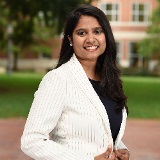 Anusha Pillay, Product Manager - Busways & Busplugs for Datacenters, Electrical Products, Siemens
Anusha Pillay, Product Manager - Busways & Busplugs for Datacenters, Electrical Products, Siemens
The rapid rise of electric vehicles (EVs) has intensified global demand for charging infrastructure, presenting both challenges and opportunities for electricity grids. This speech examines EV charging's impact on grid stability, load management, and efficiency across technical, economic, and regulatory realms. It addresses distribution network strains from heightened peak demand and potential grid congestion during peak periods. The integration of smart grid technologies and renewable energy sources, including advanced metering, demand response initiatives, and battery storage, is explored as essential strategies to alleviate these pressures and optimize grid performance amid evolving energy landscapes.
Funding & Incentives Capturing for EV Charging: Navigating Opportunities, Complexities, and the Policy Landscape
 Sarah King, Policy Principal, Advanced Energy United
Sarah King, Policy Principal, Advanced Energy United
Billions of dollars in grants, rebates, loans, and incentives flood the EV charging landscape, offering powerful opportunities for organizations to accelerate deployment. However, navigating this complex funding environment, with its political and policy dynamics, can be challenging, often leaving companies with scattered resources and no centralized source to locate funding or decipher eligibility. This session explores available financial opportunities, strategies and tricks to identify and qualify for funding, and the complexities of the current and future policy landscape, helping organizations unlock successful project implementation and growth.
9:45 amGrand Opening Refreshment Break in the Exhibit Hall with Poster Viewing
FAST CHARGING R&D: SYSTEMS & METHODS
急速充電R&D:システムと方法
A Systems-Level Approach to Unlocking Much Faster Charging Times
 Brian Barnett, PhD, CTO, Nyobolt
Brian Barnett, PhD, CTO, Nyobolt
This talk presents a systems-level approach to achieving faster charging for electric vehicles (EVs), encompassing the entire system from battery cells and packs to charging power electronics. By integrating cutting-edge advancements across these components, we have achieved significant reductions in charging times. We discuss how optimizing the synergy between battery technology and charging infrastructure is crucial for enabling ultra-fast charging solutions, ultimately promoting greater EV adoption and sustainability.
Low-Temperature Charging: Enabling Fast Charging in Real-World Temperature Scenarios
 Ian Campbell, PhD, CEO & Co-Founder, Breathe Battery Technologies
Ian Campbell, PhD, CEO & Co-Founder, Breathe Battery Technologies
Achieving fast charging at different temperatures is a challenge typically not well addressed by the majority of charging strategies in the market. More often than not, charge-time optimization is focused on too narrow a performance window. But how often do EVs on the road actually meet these conditions? What happens when a user tries to charge their EV during an Alaskan winter or Texan summer? Join us as we share how adaptive charging is revolutionizing charging consistency by delivering performance gains across a range of real-world usage scenarios.
Beyond the Plug: Exploring Wireless, Swapping, and Off-Grid EV Charging
 Shazan Siddiqi, Senior Technology Analyst, IDTechEx
Shazan Siddiqi, Senior Technology Analyst, IDTechEx
Alternative EV charging technologies beyond conductive cable-based solutions include wireless charging, which allows charging without cables; battery swapping, which replaces depleted batteries with fully charged ones in minutes; and off-grid solutions like solar-powered or generator-based charging systems, providing power in remote areas or during grid outages. These technologies enhance convenience, reduce dependency on grid infrastructure, and support faster and more flexible EV adoption.
12:30 pmNetworking Luncheon
1:15 pmDessert Break in the Exhibit Hall with Poster Viewing
FAST CHARGING R&D: BATTERY
急速充電R&D:バッテリー
Advanced Lithium-ion Battery Fast Charging: Enhancing Performance, Longevity, and Safety for Electric Vehicles
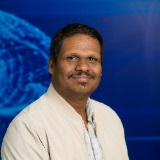 Vallabha Rao Rikka, PhD, Research Scientist IV, UL Research Institutes
Vallabha Rao Rikka, PhD, Research Scientist IV, UL Research Institutes
Cathode materials in lithium-ion batteries exhibit rapid capacity fade during fast-charging due to transition metal (TM) dissolution, especially at high voltages and elevated temperatures. Our study identifies elevated cell temperature as the primary driver of Fe dissolution in LiFePO4/graphite cells during 4C cycling. After 400 cycles, Fe dissolution accelerates, limiting cycle life to 956 cycles. High-resolution transmission electron microscopy and time-of-flight secondary ion mass spectrometry depth profile analysis confirmed Fe deposition on the graphite anode, catalyzing solid electrolyte interface formation. This dissolution-deposition process contributes to 17-20% capacity loss. Mitigating TM dissolution remains challenging, with mechanisms still unclear.
Ultrafast Laser Processing of Battery Electrodes for Faster Charging and Improved Electrolyte and Electrode Wetting
 Bertrand J. Tremolet de Villers, PhD, Research Scientist, Materials, Chemical, and Computational Science, National Renewable Energy Laboratory (NREL)
Bertrand J. Tremolet de Villers, PhD, Research Scientist, Materials, Chemical, and Computational Science, National Renewable Energy Laboratory (NREL)
Ultrafast lasers can be used to create micro-structures in battery electrodes that greatly improve electrolyte wetting and high-rate charging. Secondary and tertiary pore networks with specifically tailored geometries reduce Li-ion transport pathways from the electrode-electrolyte interface to the active particles enabling faster charging, and more homogeneous electrolyte infiltration into the electrode composite. Our cost-analysis simulations using the Battery Performance and Cost model indicate adoption of ultrafast-laser electrode processing adds minimal additional cell costs, approximately $1.50/kWh. We present a detailed characterization of experimental laser ablation for common battery electrodes, enabling informed choices of laser parameters and accurate predicting of processing throughput.
Upscaling Advanced 3D Electrode Architectures for Fast Charging Batteries
 Wilhelm Pfleging, PhD, Head of Group Laser Materials Processing/Lithium-ion Batteries, Institute for Applied Materials (IAM-AWP), Karlsruhe Institute of Technology (KIT)
Wilhelm Pfleging, PhD, Head of Group Laser Materials Processing/Lithium-ion Batteries, Institute for Applied Materials (IAM-AWP), Karlsruhe Institute of Technology (KIT)
Process upscaling of laser structuring of thick film composite electrodes has been pushed towards pilot-line level for the production of advanced 3D lithium-ion batteries. Fast charging performance is significantly improved for optimized 3D batteries, while lithium plating is substantially suppressed. In addition, capacity retention is dramatically increased and cycle life can be at least doubled. The 3D battery concept is demonstrated for both pouch and cylindrical cells and offers significant advantages in increasing energy density while reducing production costs. Roll-to-roll machine concepts using high-power ultrafast lasers have been established, enabling high rate and damage-free structuring of high mass-loaded electrodes.
3:20 pmRefreshment Break in the Exhibit Hall with Poster Viewing
PLENARY KEYNOTE
プレナリー基調講演
The Importance of Passive Propagation Resistance in Battery Pack Design
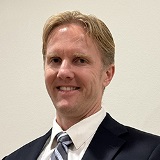 Troy Hayes, PhD, Director of Quality, Tesla
Troy Hayes, PhD, Director of Quality, Tesla
More than 30 years after the first Li-ion battery was produced, random thermal runaway events still occur in the field. Despite the low probability of such incidents at the cell level, the volume of cells in EVs dictates that manufacturers must prepare for these occurrences. Ensuring that this does not create a significant risk to vehicle occupants is crucial and is a fundamental aspect of battery pack design. This talk will discuss the importance of passive propagation resistance and the rigors of testing given the stochastic nature of Li-ion battery thermal runaway.
A Comprehensive Analysis of Modern Silicon-Carbon Nanocomposite Negative Electrode Materials for Li-ion Batteries
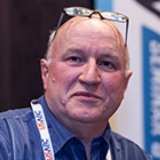 Jeff Dahn, FRSC, PhD, Professor of Physics and Atmospheric Science, NSERC/Tesla Canada Industrial Research Chair, Canada Research Chair, Dalhousie University
Jeff Dahn, FRSC, PhD, Professor of Physics and Atmospheric Science, NSERC/Tesla Canada Industrial Research Chair, Canada Research Chair, Dalhousie University
There is a huge world-wide push to develop and manufacture modern Silicon:Carbon nanocomposite materials (Si:C) for Li-ion batteries. There are a handful of companies in the US (e.g. Sila, Group 14, etc.), several in Europe as well as OVER 70 companies in China developing and/or manufacturing such materials. Why is this happening? In this lecture I will describe the structure and properties of modern Si:C materials and show why they are so attractive compared to earlier alternatives. The best materials show specific capacities near 2000 mAh/g, first cycle efficiencies near 90%, very little irreversible swelling during charge-discharge cycling and compatibility with simple binders like CMC/SBR. The best materials can be used with typical Li-ion battery electrolytes with common electrolyte additives. We will show results for Li-ion pouch cells containing 20% and 50% by weight of Si:C (balance graphite) where impressive cycle life has been achieved. Energy density increases over "graphite-only" cells are very significant. All the Si:C materials we have tested show large REVERSIBLE volume changes which means that significant care must be taken in cell design.
This and Next-Generation Battery Development-A UK Perspective
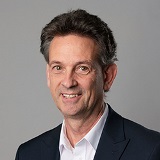 Martin Freer, PhD, CEO, Faraday Institution
Martin Freer, PhD, CEO, Faraday Institution
The UK government set out a battery strategy in 2023 targeting the three elements, including design and development of the batteries of the future as well as strengthen the resilience of UK manufacturing supply chains and enabling the development of a sustainable battery industry. This is matched by a significant delivery program associated with the Faraday Battery Challenge, including the Faraday Institution which coordinates the UK's battery research program. This presentation will provide an overview of the UK's battery strategy, the development of associated research programs, and highlight future focus areas for research and innovation.
5:25 pmReception in the Exhibit Hall with Poster Viewing
6:30 pmClose of Day
3月19日(水)
6:45 amRegistration Open
7:00 amCoffee Talk: Interactive Roundtable Discussions with Coffee & Pastries
Roundtable discussions are informal, moderated discussions with brainstorming and interactive problem-solving, allowing participants from diverse backgrounds to exchange ideas and experiences and develop future collaborations around a focused topic.
TABLE 1: Battery Raw Materials Supply Chain
Moderator: Robert Privette, Manager, Business Development, Rechargeable Battery Materials North America, Umicore USA, Inc.
TABLE 2: Li-ion NMC Fast Charging New Cells for E-Mobility
Moderator: Shmuel De-Leon, CEO, Shmuel De-Leon Energy Ltd.
TABLE 3: Electrolyte Developments: New Components and Approaches
Moderator: Sam Jaffe, Vice President, Battery Solutions, E Source
TABLE 4: Battery Pack System Cost and Safety - Will Future xEV Battery Packs Increase in Complexity or Simplify and How Will Cost and Safety Be Impacted?
Moderator: Kevin Konecky, Battery and Energy Storage Systems Consultant, Total Battery Consulting
TABLE 5: Innovations in Recycling Battery Materials & Second Life
Moderator: Steven Sloop, President, OnTo Technology LLC
TABLE 6: Opportunities and Barriers to Fast Charge in Automotive and Other Applications
Moderator: Brian Barnett, PhD, President, Battery Perspectives
TABLE 7: Provisional Patents to Due Diligence
Moderator: Grant Ehrlich, PhD, Member, Intellectual Property & Technology, Stites & Harbison PLLC
TABLE 8: Understanding the Pressure Effects on Li Metal Batteries
Moderator: Bin Li, Senior Scientist & Joint Professor, Electrification, Oak Ridge National Laboratory
TABLE 9: Challenges and Opportunities in the Distribution of Relaxation Times Analysis
Moderator: Tom Ruether, Lecturer & Chair, Electrical Energy Systems, University of Bayreuth
TABLE 10: How Will Emerging Technologies and Paradigms Impact the Future of Electrified Transportation?
Moderator: Benny Varghese, PhD, Research Engineer, Energy Storage & Advanced Transportation, Idaho National Laboratory
TABLE 11: Battery Testing & Aging
Moderator: Gerald Sammer, PhD, Principal Business Development Manager, AVL List GmbH
TABLE 12: Thermal Runaway
Moderator: Lin Liu, PhD, Professor, Mechanical Engineering, University of Kansas
TABLE 13: Consumer-Driven Trends in Battery Development for Personal Electronics
John Wozniak, PhD, President, ESP Consulting
TABLE 14: Battery Electrolytes: Materials, Developments and Manufacturing
Moderator: Carl Thoemmes, Senior Manager, Orbia Fluor & Energy Materials
WHERE CHARGING R&D MEETS INFRASTRUCTURE EXPANSION
充電R&Dとインフラ拡張が出会う場所
 Online detection and safety diagnosis of lithium plating in lithium-ion batteries during low-temperature fast charging process
Online detection and safety diagnosis of lithium plating in lithium-ion batteries during low-temperature fast charging process
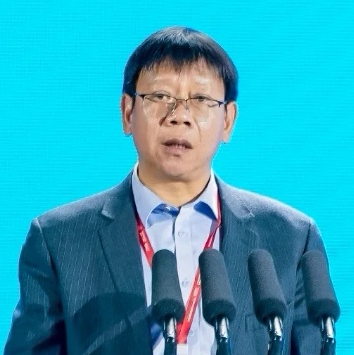 Xiao Cai, CTO & Founder, R&D, Stropower
Xiao Cai, CTO & Founder, R&D, Stropower
Lithium-ion batteries dominate the field of portable devices and electric vehicles, but their large-scale application is limited by fast charging at low temperatures. The traditional charging strategy is inefficient, and our company has optimized charging methods such as MCC and VCP to explore new approaches to low-temperature fast charging, including AC heating fast charging strategy and in-situ lithium plating monitoring based on expansion force and DEIS changes, identifying lithium plating time nodes and adjusting charging current in real time to extend battery life.
Where Fast Charging R&D and Infrastructure Expansion Converge
Sarah King, Policy Principal, Advanced Energy United
Global EV adoption will require faster reliable charging and the significant expansion of public charging infrastructure. Hear from our experts as they aim to facilitate this transition through highlighting recent technological advancements in fast charging and exploring the key challenges and opportunities in scaling EV charging infrastructure.
9:30 amSponsored Presentation (Opportunity Available)
 Binder-free electrodes enabling high-rate Li-ion battery
Binder-free electrodes enabling high-rate Li-ion battery
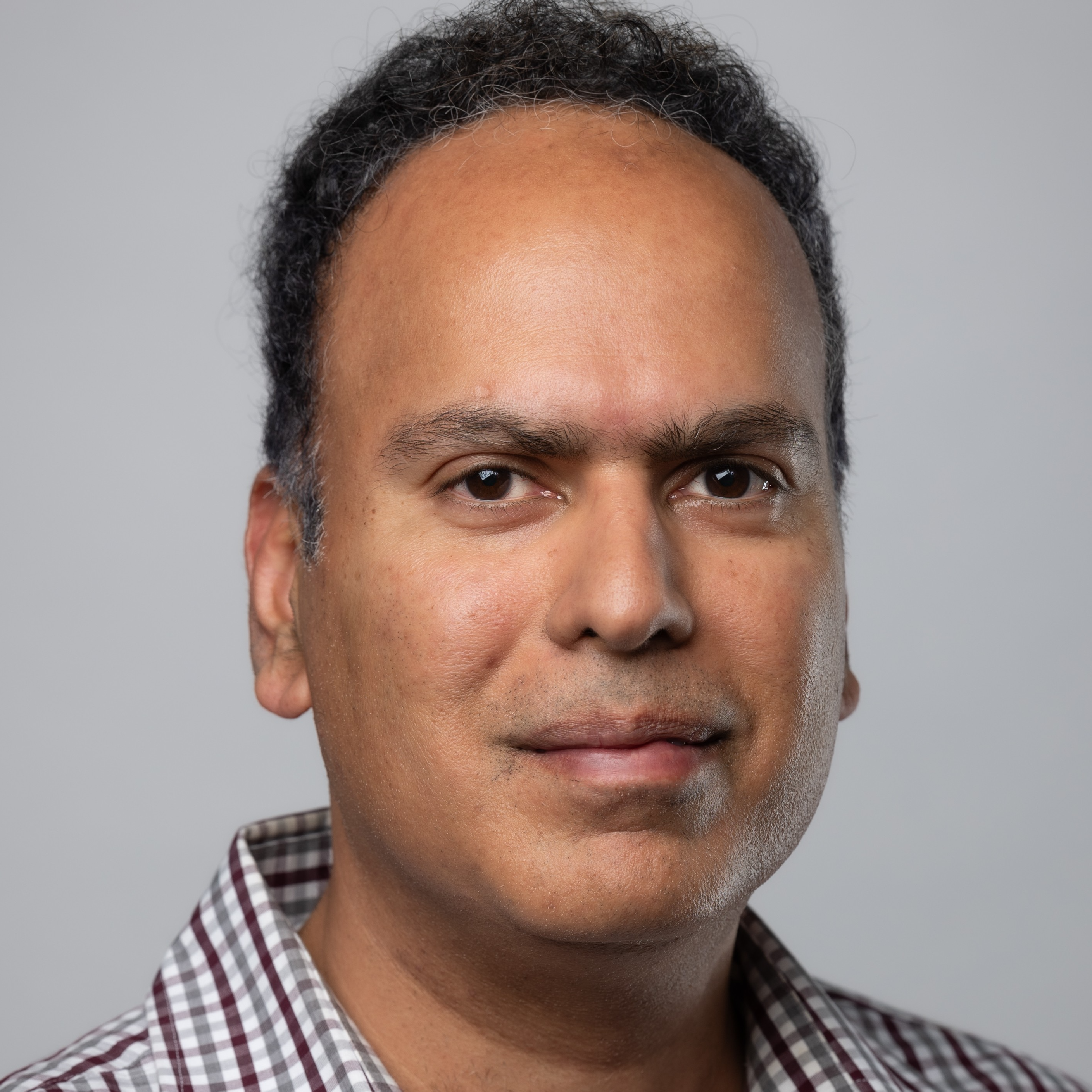 Sean Brahim, R&D Manager, Energy Storage Devices, YTC America, Inc.
Sean Brahim, R&D Manager, Energy Storage Devices, YTC America, Inc.
YTCA has developed binder-free anodes and cathodes containing carbon nanotube (CNT) in lieu of polymer binder as electrodes for Li-ion batteries. Our proprietary processing of CNT into viscous organic or water-based slurry without surfactant or dispersant eliminates the need for organic binder and carbon black additives in both anode and cathode electrodes. Moreover, the absence of binder in electrode formulations facilitates the transition away from costly and toxic NMP solvent for slurry preparations. We have demonstrated scalable R2R coating of binder-free graphite and lithium titanium oxide (LTO) anodes, as well as binder-free NMC and LFP cathodes in IPA solvent. LiB pouch cells rated at 1.5 Ah and 3 Ah were subsequently assembled containing the binder-free electrode combinations. LiB cell performance advantages include superior lifetime cycling, 10x faster charging at 10C rate, and 2x higher capacity retention than conventional LTO cells with binder.
10:15 amCoffee Break in the Exhibit Hall with Poster Viewing
CHARGING SEAMLESSLY AND SECURELY
シームレスで安全に充電
The Future of Fast Charging: A User's Wishlist
 Antony Martin, Lead Product Manager - Charging, Lucid Motors
Antony Martin, Lead Product Manager - Charging, Lucid Motors
Many fast charging stations lack the basic amenities that ICE drivers can expect from even the barest of gas stations. This presentation outlines the improvements that must be made to the EV charging customer's experience to not only make EV adoption more palatable, but the more desirable option.
ChargeX Consortium: Latest Efforts in Addressing Charging Reliability and User Experience
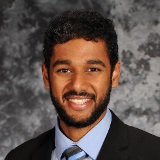 Benny Varghese, PhD, Research Engineer, Energy Storage & Advanced Transportation, Idaho National Laboratory
Benny Varghese, PhD, Research Engineer, Energy Storage & Advanced Transportation, Idaho National Laboratory
Charging reliability is crucial for the widespread adoption of electric vehicles. A reliable charging infrastructure ensures that EV owners can charge their vehicles without encountering major issues, which is essential for building consumer confidence and reducing range anxiety. Consistent and dependable charging experiences enable former internal combustion vehicle owners to seamlessly transition to electric vehicles. This is a key challenge for the EV market as a whole and will require collaborative efforts to enhance current levels of charging infrastructure reliability. The presentation will provide an overview of the ChargeX multi-lab industry consortium and its efforts to address public EV charging reliability.
Understanding the EVSE Ecosystem: Strategic Initiatives and Guidance for Advancing Secure Fast Charging
 Sabrina Rodriguez, Research Engineer, Southwest Research Institute (SwRI)
Sabrina Rodriguez, Research Engineer, Southwest Research Institute (SwRI)
As electric vehicle (EV) charging infrastructure expands, so does the risk of cyberattacks. This presentation addresses the role of cybersecurity in EV charging infrastructure, highlighting high-profile cyberattacks, as well as cybersecurity best practices and guidance solutions. This presentation focuses on known vulnerabilities and exploits seen in EV charging infrastructure, as well as discusses Southwest Research Institute’s (SwRI) applied research conducted on EV chargers (L2 and Direct Current Fast Charging (DCFC)).
12:30 pmSponsored Presentation (Opportunity Available)
1:00 pmNetworking Luncheon
2:15 pmDessert Break in the Exhibit Hall with Poster Viewing
2:45 pmClose of Conference
* 不測の事態により、事前の予告なしにプログラムが変更される場合があります。
アジェンダ・講演者・スポンサー更新





 Talk Title to be Announced
Talk Title to be Announced









 Next-Generation Battery Research
Next-Generation Battery Research High-Performance Battery Manufacturing
High-Performance Battery Manufacturing Advances in Automotive Battery Applications
Advances in Automotive Battery Applications Battery Safety
Battery Safety
